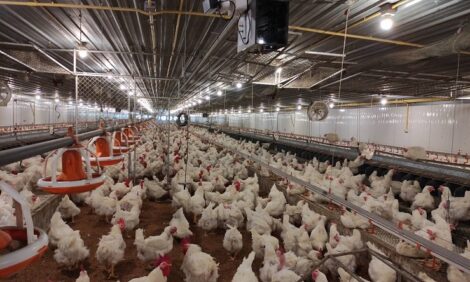



Judge in Mexico Halts GMO Maize Test Plots
ANALYSIS - A Mexican judge took a precautionary measure and ordered the government to stop giving permits to transnational companies for planting genetically modified (GMO) corn at an experimental and commercial scale, writes Chris Wright, Senior Editor.Opponents of genetically modified organisms (GMO) widely hail this decision, but those in favour of GMOs say the case is definitely not closed.
All of this against the legal reality that Mexico banned the planting of GMOs back in 1998. However, that law was modified in 2005 to allow the planting of test plots, by permit only and within some very strict rules, in some of the states of Mexico, primarily those along the US border.
It is these permits that the judge ruled against. Companies like Monsanto, Pioneer, Syngenta and Dow AgroSciences are the companies specifically involved in requesting the permits to plant pilot plots. Those same companies are confident that when all is said and done, the planting of GMO corn will be allowed.
There are close to 70 native types of corn in Mexico, and there is a worry that the native corn could become contaminated if GMO corn is planted. Add to that, corn is the main food staple in Mexico, particularly in the central and southern parts of the country. Plus, in a cultural sense, corn has an almost religious significance in Mexico.
In July of this year, a coalition of over 50 groups and individuals filed suit to block field trials of GMO corn in Mexico. The plaintiffs say they have scientific evidence from studies that document the contamination of Mexico’s native corn varieties by GMO corn.
The ban was granted by a judge for the Federal District Court for Civil Matters on October 10. The judge cited the risk of imminent harm to the environment as the basis for the decision. He also ruled that multinationals like Monsanto and Pioneer are banned from planting any transgenic corn in Mexico as long as lawsuits are working their way through the judicial system.
That means that case is not over, and this is not the final and definitive ruling on GMO corn in Mexico. But it does stop any further action until the final verdict is decided.
The Mexican Secretary of the Economy, Ildefonso Guajardo, argues that GMO products, like corn, should be planted in Mexico. Secretary Guajardo told an audience at the Bio Conference in Monterey, “Mexico imports many foodstuffs that use GMO corn, but we still won’t allow Mexican farmers to plant GMO corn.”
“The result,” he said, “is more poverty for the farmers since we restrict them to using low productivity technology. We have to allow the use of these transgenic products and we have to do it soon, for the good of Mexico.”
Agrobio, the group representing the transnational GMO companies working in Mexico, said that it would respect the judge’s decision. However, they will continue to try and scientifically prove the benefits of biotechnology. There are four years-worth of testing that document the benefits for farmers as well as to the environment.
Corn produced in Mexico, white corn, is only used to feed people, not animals. Therefore the Mexican poultry and livestock sectors use sorghum, plus imported yellow corn and soybeans from the US.
According to The US Grains Council website, Mexico is the second largest importer of US corn (Japan being first). There is no indication that this will change anytime soon.
The ban in Mexico does not affect imports of US GMO corn, it only bans the testing and use of that corn in Mexican fields.
At this point, it is hard to tell how the case, and the debate surrounding it, will finally be decided. Particularly since the government wants the approval of GMO corn. For now, the ban stands until further notice.









